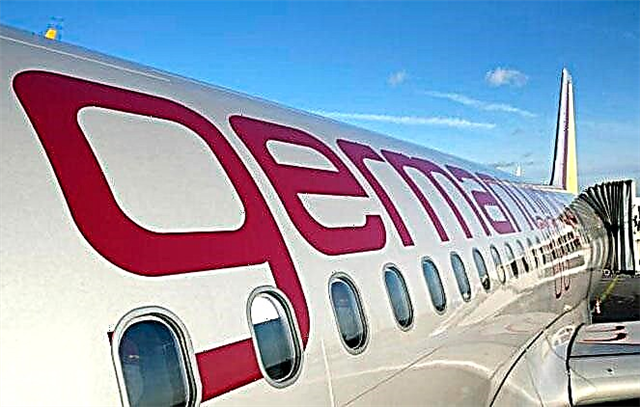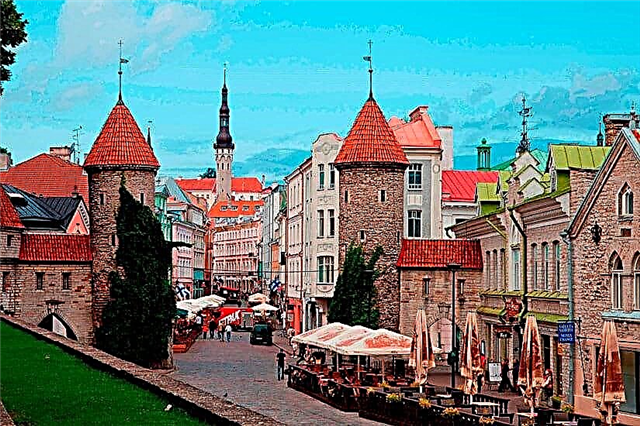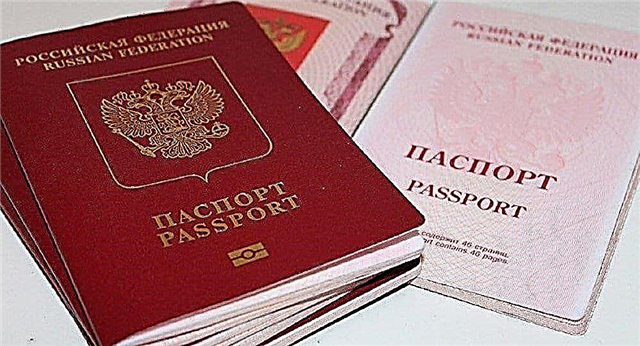The modern Turkish Republic demonstrates unprecedented economic progress. Now she is confidently moving in the direction from an agrarian state to an industrial one. Against the background of economic development, changes are taking place in the national educational system, the task of which is to provide the country with highly qualified specialists. Today, education in Turkey in terms of quality and technical support is confidently approaching the level of the Western. It is not for nothing that some Turkish universities are compared with leading universities in Europe and the United States.

What are the benefits of studying in Turkey
The main advantages of Turkish education are considered to be:
- world-class quality;
- a decent material, technical and training base;
- lack of payment for primary and secondary school education in public institutions;
- affordable prices for training in private schools and universities;
- recognition of diplomas issued by Turkish universities in many countries of the world;
- the ability of students to independently adjust the curriculum;
- the prospect of an internship in Turkey with further employment;
- relatively inexpensive accommodation in the country for citizens of other states;
- the opportunity to study in English with the parallel study of a second foreign language;
- a wide variety of grants and scholarships for students.
In addition to the above advantages, this country attracts foreigners with favorable climatic conditions and a rather friendly attitude of the local population towards immigrants.
National Education System of Turkey
In the state, the education sector is under close government control. The Constitution of the Republic provides every citizen with the right to receive an education in accordance with individual needs.
The education system in Turkey includes the following levels: preschool education, primary and secondary school, higher education. A special place in this system is occupied by special educational institutions.
Let's consider the specifics of each level in detail.
Features of preschool education
Preschool education in the country is considered compulsory for children aged 3 to 5 years. Implemented within the walls of kindergartens and preparatory classes. Most of them are private institutions, but there are some that are attached to public elementary schools.
Children can go to kindergarten in Turkey for the whole day or half. Here, teachers help them develop physically and mentally, in a playful way they contribute to the upbringing and improvement of abilities and skills. In kindergarten, preschoolers are prepared for primary school.
Preschool education is conducted mainly in Turkish. But there are many English and even Russian kindergartens in the country.
Preschool education in Turkey is paid.
Primary school system
Every child between the ages of 6-14 is required to attend primary school (that is, the total duration of schooling is 8 years). Upon graduation from the relevant institution, children are issued with diplomas of primary education. Those who have not reached the required level of knowledge and skills are left in the same class for another year to undergo a repeated training course.
There are public and private primary schools in Turkey. In the first, everyone learns for free, in the second, teachers provide services on a paid basis. Public school students are required to wear a uniform.
As in preschool institutions, teaching in primary schools is predominantly in Turkish. But in the country there are private educational institutions with English and Russian as the languages of instruction. For example, today more than one Russian school is functioning in Istanbul, Antalya (in the Lara and Konyaalti districts), Alanya.
The aim of primary education in Turkey is to provide children with the necessary knowledge and skills to continue their education in secondary school.
Secondary school system
From 14 to 18 years old, children attend secondary school. Here they are prepared for entering universities, based on their interests and opportunities. Education in public institutions is free, and in private - paid (from 3,500 to 5,000 dollars per year).
Upon graduation from high school, each student takes the National Entrance Exam. Its purpose is to assign graduates to universities and relevant faculties.
In general education institutions, teaching is carried out mainly in Turkish. But there are both English and Russian institutions. For example, among Russians living in the country, the school at the Russian Embassy in Turkey named after the hero of the Russian Federation A.G. Karlov is popular.

In addition to general education secondary schools, there are specialized institutions in Turkey. In particular, these are secondary schools and lyceums:
- scientific - created for gifted children in the field of natural / exact sciences;
- Anatolian - based for teaching one of the foreign languages, which teenagers will use as a basic language during their studies at the university;
- fine arts - for those with artistic talent;
- foreign languages - provide an opportunity to study in depth several foreign languages.
It is quite difficult to get into specialized secondary schools: you need to pass an entrance exam, and the passing score is high.
Higher education system
All universities in the country are controlled by the Council of Higher Education, which has been functioning since 1981. The responsibilities of this organization include drawing up plans for the creation and development of educational institutions, monitoring their work, training teaching staff, coordinating cooperation between universities.
Higher education in Turkey is three-stage. In the universities of the country, you can get the following academic degrees:
- bachelor;
- master;
- Ph.D.
Applicants can apply for several directions at once (up to 20). Distribution among universities is carried out by a computer program based on the points available to candidates and their place in the alphabetical list. As a rule, only a third of applicants are enrolled.
In addition to universities, the country's higher education system includes military and police schools, colleges and academies, and higher vocational training schools.
Today there are more than 150 universities in Turkey; two thirds of them are state-owned, the rest are private. Education in them is paid. But if a student is insolvent and at the same time demonstrates a high level of academic performance or gifted with a special talent, some large companies or the state may agree to pay for his studies.
Special education
The special education system includes schools for children with disabilities. In particular, the country has institutions for schoolchildren with:
- vision problems;
- hearing impairment;
- restrictions on the functions of the musculoskeletal system;
- deviations in intellectual development;
- diseases of a chronic nature.
The purpose of such institutions is to create conditions that are comfortable for the education of special children, to promote their integration into society. Special education in Turkey is free. Children can stay in schools throughout the day, live with them temporarily or on a permanent basis, like in boarding schools.
Prestigious Turkish Universities
Today the Republic of Turkey is one of the 50 countries in the world with the highest quality higher education. Both private and public universities in Turkey are part of the Bologna system, which brings them as close as possible to the European level.
According to student reviews, the best universities in Turkey are:
- Ankara University. It is a higher education institution founded by Ataturk in 1946. There are 14 faculties in the structure. The university has 246 study programs. The total number of students exceeds 64,000.
- Bahcesehir University. Has been operating since 1998. Location - Istanbul. The institution consists of 3 faculties and 12 departments. About 27,000 students study here. This higher education institution is included in the top 3 universities in the country.
- Galatasaray University. It was founded in 1992 on the basis of the court school. An institution is located in the Istanbul quarter called Galata. Consists of 5 faculties and 2 institutes. The total number of students is about 3,000.
- Akdeniz University (Mediterranean University). Founded in Antalya in 1982. It includes 20 faculties, 7 institutes, 8 vocational schools, 4 master's degrees, 4 colleges, a conservatory. The university has about 32,000 students.
- Yashar University. Created in 2001 in Izmir. The university consists of 7 faculties, 2 institutes and 18 professional colleges. More than 30,000 students study here.
- Girne American University of Turkey. It was founded in 1985. The campuses of the university are located in Istanbul and Cyprus, in the northern part of the island, which belongs to the Turkish Republic. The university has 18 faculties.
- Marmara University. Founded in Istanbul in 1883. It is the oldest university in Turkey. It has about 65,000 students. Teaching languages - Turkish, English, French, German. The structure of the institution includes 16 faculties, 11 institutes, 5 schools, 4 vocational schools. The Faculty of Medicine is especially popular.
This is not a complete list of prestigious Turkish universities. Each applicant, choosing the best higher educational institution for himself, is guided by several criteria, including the existing faculties and specialties, the cost of training, and international exchange programs.
Rules for admission of foreigners to Turkish universities
Thanks to the high quality of education and the recognition of diplomas in the international arena, the popularity of Turkish higher education institutions around the world is growing rapidly. And the question of how to enter a Turkish university is one of the most frequently asked by foreign applicants.

Most universities put forward the following requirements to their potential students who came from abroad:
- knowledge of Turkish or English;
- lack of Turkish citizenship;
- no dual citizenship, one of which would be Turkish;
- the presence of a certificate of complete secondary education received on the territory of their country (if in the applicant's homeland school education is designed for 10 years, he will have to take preparatory courses at the chosen university).
Foreigners must submit documents to the Student Selection and Admission Center, and then pass the entrance exams: language test and basic knowledge test. The services provided by the Center are paid (about $ 100). Therefore, the applicant must provide a receipt for depositing the required amount to the account of the educational institution.
Package of documents
Along with an application drawn up in Turkish and English, a foreigner must provide for admission to a Turkish university:
- a certificate of complete secondary education, translated into Turkish and English (translations must be notarized);
- language proficiency certificate;
- results of national and international testing;
- international passport.
If a foreign applicant is interested in a master's degree in Turkey, he must confirm that he has a bachelor's degree issued by a higher education institution in his homeland. For this purpose, it is necessary to contact the Council of Higher Education of Turkey and fill out a special application form in the established form.
Together with it, you will need to provide:
- the original of the certificate with the addition and their translations into Turkish and English;
- the original of the diploma with the supplement and their translations into Turkish and English (the supplement must indicate the academic hours and grades in all subjects);
- a certificate from a Turkish university, arguing the need for the recognition of the diploma;
- additional documents (at the request of the Turkish Higher Education Council).
All translations must be certified by a notary or a foreign mission of the Republic of Turkey.
Obtaining a study visa
For Russians, Ukrainians and other foreigners, studying in Turkey is possible only with a student visa. It is issued after the applicant has been enrolled in one of the country's universities.
To obtain a visa, the Turkish embassy must be provided with:
- an application form filled in by the applicant in the established form;
- international passport;
- Photo;
- an invitation to study from a Turkish university.
The student visa is valid for 6-12 months. It will have to be renewed periodically.
How long does it take and how much does it cost to study
The duration of study for bachelor's degree is 4 years, for master's degree - 2 years, for postgraduate and doctoral studies - from 2 to 4 years.

Public universities in Turkey offer educational services much cheaper than private ones. In universities with a state form of ownership, prices fluctuate approximately in the following range:
- English language of instruction: from 150 to 500 dollars per year - for Turks, from 450 to 1,500 dollars per year - for foreigners;
- Turkish language of instruction: from 80 to 250 dollars per year - for Turks, from 240 to 750 dollars per year - for foreigners.
In private universities, tuition fees range from $ 5,000 to $ 12,000 annually (and distance education is cheaper). In addition, the student will need an additional $ 100 to $ 300 per semester for teaching materials, payment of contributions to various funds of the university.
Grants and scholarships
The government of the Republic of Turkey is interested in the constant increase in the number of foreign students in local universities. Particular attention is paid to attracting applicants from Eastern European, Middle Eastern, Asian and African countries. For this purpose, there is a system of grants and scholarships for foreigners.
At the government level in Turkey, competitions are held annually for grants (cash grants for training). Abroad, information about them is disseminated through those foreign universities with which Turkish universities closely cooperate. Also, news about competitions are published on the Internet on special sites.
This cash allowance covers university tuition, accommodation, health insurance, transportation costs. Thanks to grants, study in Turkey for Russians, Kazakhs, as well as citizens of other countries can become free.
Scholarships are awarded to students who demonstrate high academic achievement. It is also practiced to award scholarships to applicants who have earned the maximum score on the entrance exams. The amounts of scholarships are different, some of them allow you to cover the costs of training, accommodation, meals, travel in transport.
Student life
The academic year in Turkey begins at the end of September – October. There is a two-week vacation between semesters in February – March. In June, students go on summer holidays.
You cannot officially work during your studies in Turkey. But some universities practice giving their students the opportunity to earn extra money on campuses - in libraries, in departments, in computer, sports centers. There are also programs that allow students to undertake paid internships with Turkish companies.
Prospects for further employment
If the graduate is fluent in Turkish or English, he has a chance to get a job in Turkey after graduation. But salaries here are much lower than, for example, in European countries.The highest paid is work in embassies, non-governmental organizations, and private educational institutions.
Since the Republic of Turkey has signed the Bologna Declaration, diplomas issued by its universities are also recognized on the territory of other countries participating in the Bologna Process. This means that graduates have the prospect of getting a job in European and international companies.
In Russia, holders of diplomas from Turkish higher educational institutions are in high demand in the labor market, especially in the fields of finance, economics and business, medicine, and computer science.
Outcome
Interest in Turkish education among foreigners is growing from year to year. This is due to both its decent quality, comparable to European, and affordable prices. Diplomas issued by universities in Turkey are quoted all over the world. This means that their owners can count on promising work both at home and abroad.











